2018 was a banner year for the Concord Consortium and we’re thrilled to present the year in review with our top 10 news stories.
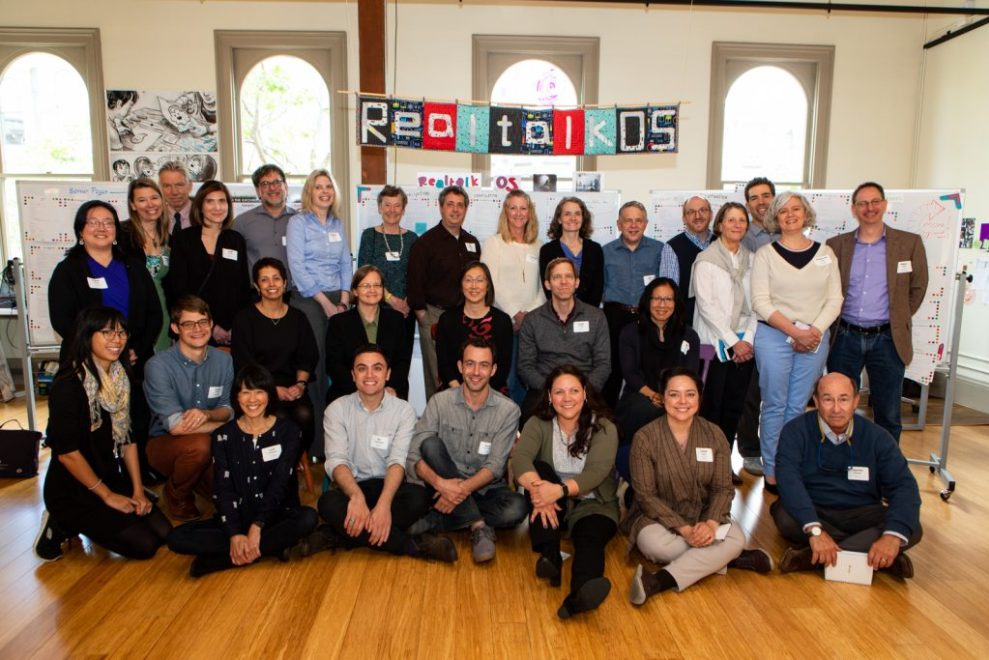
1. We Launched Designing 2030 to Transform the Future of STEM Teaching and Learning
Our new Designing 2030 initiative will transform STEM teaching and learning to reach more students with educational technology. Thirty STEM education professionals, leaders of informal education institutions, teachers, scientists, curriculum developers, programmers, and learning scientists convened for a two-day summit at Dynamicland in May 2018. Sponsored by the Gordon and Betty Moore Foundation, the meeting focused on envisioning technologies in unique ways, generating new collaborations, and leveraging the power of open educational resources. Our goal is to revolutionize STEM learning experiences for a broader, more diverse group of learners.
2. We Continued to Spark K-12 Data Science Education
As part of our ongoing efforts to bring about effective learning with and about data, we hosted a dozen data science education webinars and meetups, including a gathering at the International Conference On Teaching Statistics (ICOTS) in Kyoto, Japan. We invite you to help us bring about the data science education revolution:
- Try our free Common Online Data Analysis Platform (CODAP)—it’s available in six languages!
- View the recording of our webinar with edWeb.net “Help Students Explore Data: Free Tools for Building Data Fluency.”
- Participate in an upcoming webinar.
- Spread the word about six modes of working with data.
3. We Published Influential Research and Analysis
We published authoritative articles in the Journal of Science Education and Technology, Science Scope, The Science Teacher, Educational Assessment, School Science and Mathematics, Computer Applications in Engineering Education, Science and Children, and the EURASIA Journal of Mathematics, Science and Technology Education. Get free access to these articles.
4. We Presented Resources and Research Around the World
We presented our free resources and research at over 35 sessions at NARST, NSTA, the USA Science & Engineering Festival, AERA, DRK-12 Meeting, American Society for Engineering Education 2018, ISTE, Building Learning Communities, Connected Learning Summit, Maker Educator Convening, MSELA, MAST, and The Tinkering Studio at the Exploratorium. We look forward to meeting more of you across the globe in 2019! See where we’ll be.
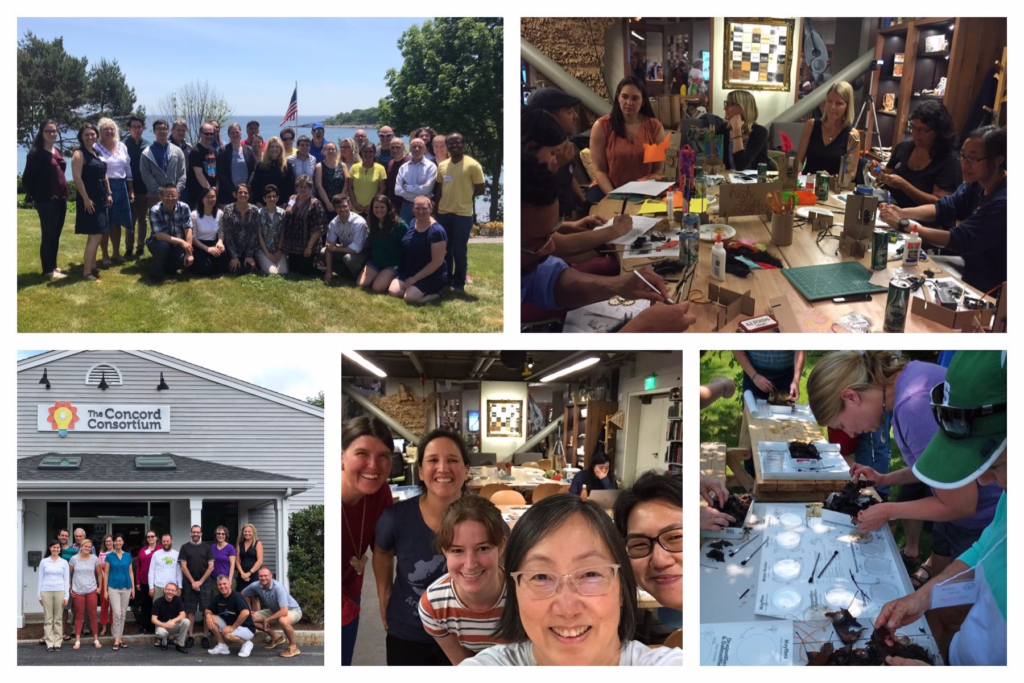
5. We Collaborated with Hundreds of Incredible Teachers
As part of many of our National Science Foundation-funded research projects, hundreds of teachers participated in hands-on workshops and professional development sessions. Teachers used geological models to explore how plate movements result in the distribution of various geological phenomena, examined the health of local waterways, used advanced learning technologies embedded in Energy3D to empower authentic scientific inquiry and engineering design, created system models with SageModeler, built creative paper mechatronics contraptions, and more.
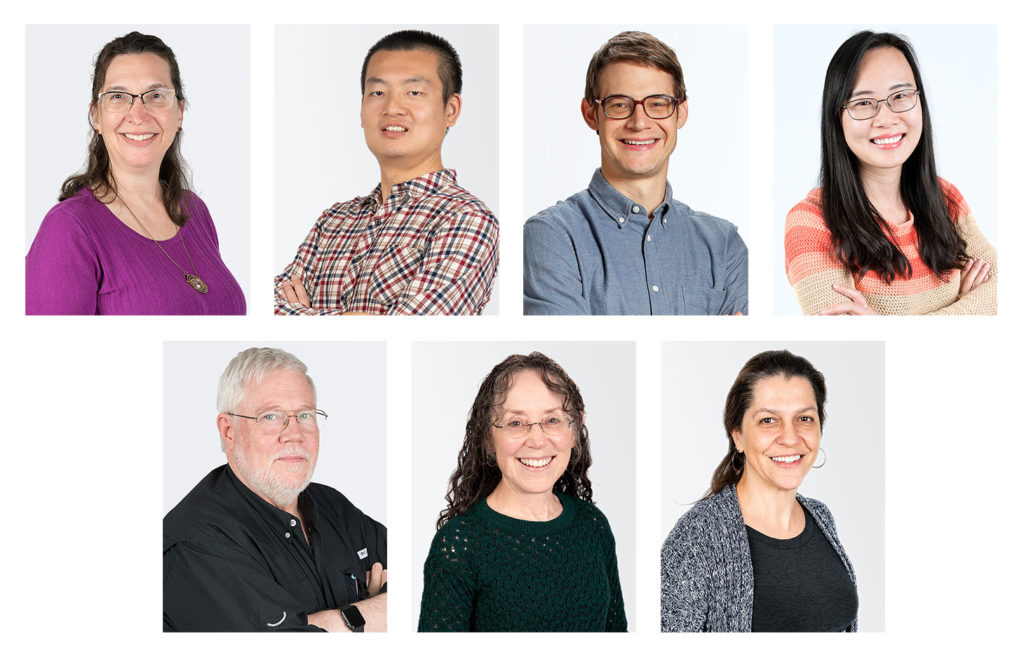
6. We Welcomed New Employees
We welcomed seven amazing new employees in our Concord, MA, and Emeryville, CA, offices: Leslie Bondaryk, Guanhua Chen, Colin Dixon, Xudong Huang, David Love, Lynn Stephens, and Kenia Wiedemann. Want to join our growing family? We’re hiring!
7. We Received National Recognition for our Curriculum and Technology Design
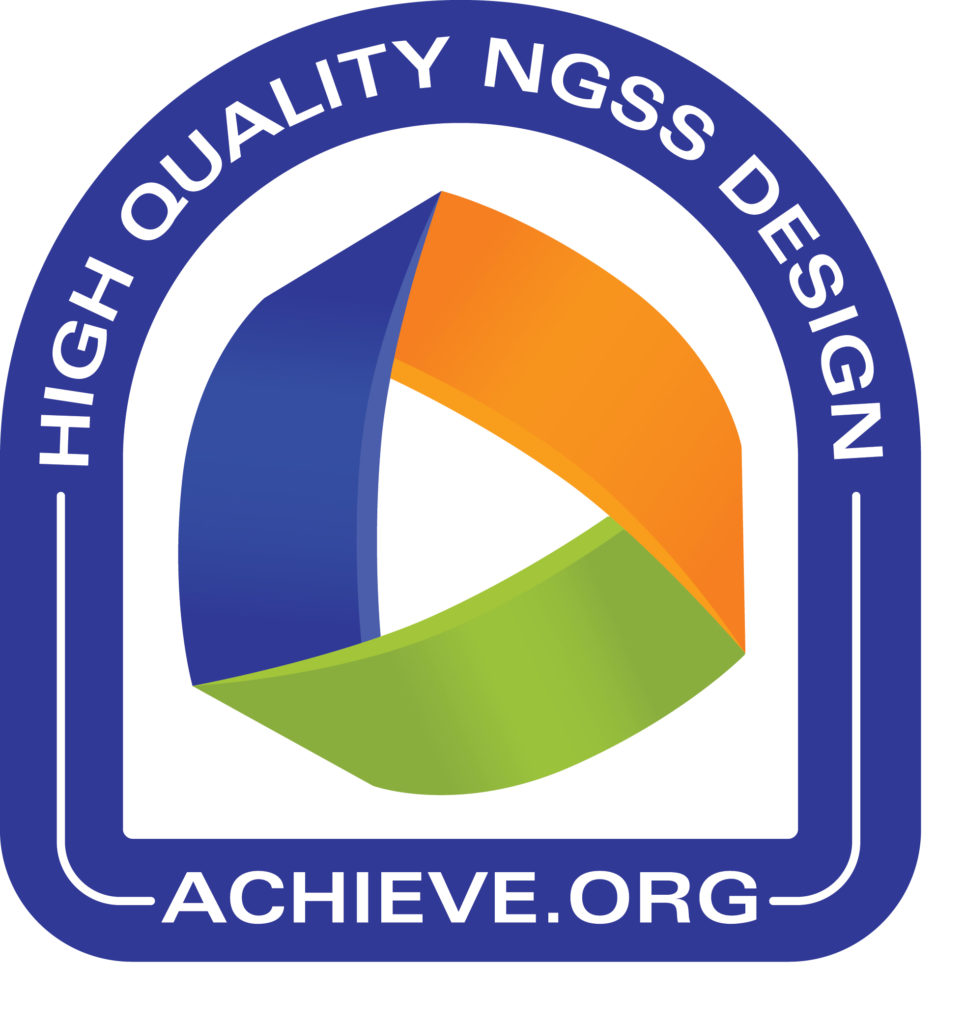 We were awarded the world’s first Next Generation Science Standards (NGSS) Design Badge for our curriculum unit “Interactions Unit 1: Why do some clothes stick together when they come out of the dryer?” developed with the CREATE for STEM Institute at Michigan State University. Students develop a conceptual model of electrostatic interactions by exploring how various charged objects interact with each other and with uncharged objects. The NGSS Design Badge is awarded to exemplary instructional materials.
We were awarded the world’s first Next Generation Science Standards (NGSS) Design Badge for our curriculum unit “Interactions Unit 1: Why do some clothes stick together when they come out of the dryer?” developed with the CREATE for STEM Institute at Michigan State University. Students develop a conceptual model of electrostatic interactions by exploring how various charged objects interact with each other and with uncharged objects. The NGSS Design Badge is awarded to exemplary instructional materials.
The Model My Watershed app, developed in collaboration with Stroud Water Research Center, was awarded the Amazon Web Services (AWS) 2018 City on a Cloud Partners in Innovation award. Model My Watershed enables educators, students, citizens, and municipal decision-makers to learn about the impact of storm water runoff in their neighborhoods and watersheds. The City on a Cloud Innovation Challenge encourages cities, counties, universities, and organizations serving underserved populations to look to the cloud as they work to make the world a better place.
8. We Researched and Developed Educational Technology and Curriculum in Over 40 Projects
We’re actively developing and researching educational technology innovations with countless amazing collaborators in over 40 projects funded by the National Science Foundation, the Gordon and Betty Moore Foundation, the William K. Bowes, Jr. Foundation, General Motors, and other generous agencies. We’re extending our pioneering work in the field of probeware and other tools for inquiry and continuing to develop award-winning STEM models and simulations. We’re taking the lead in new areas, including data science education, analytics and feedback, and engineering and science connections. And we’re exploring and creating cutting-edge new tools and technologies so learners have access to powerful, effective STEM learning experiences that prepare them for the future.
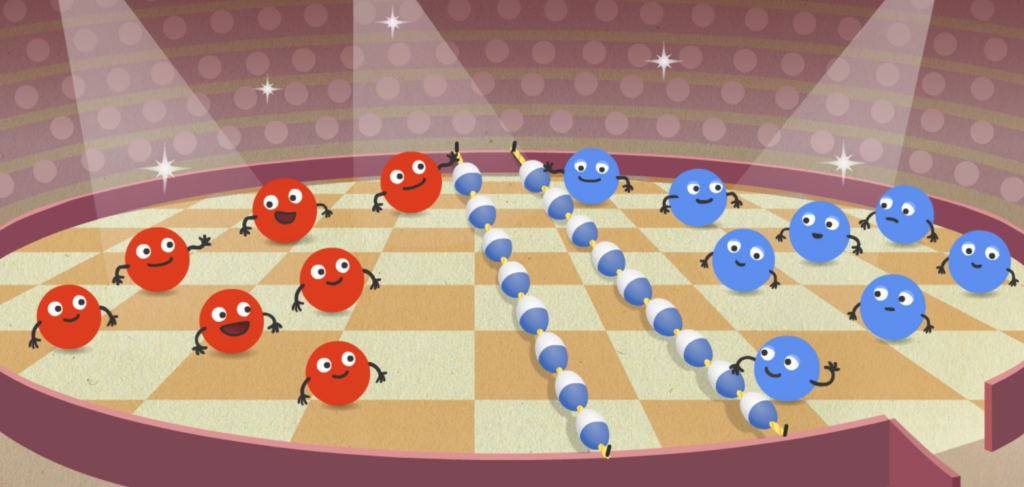
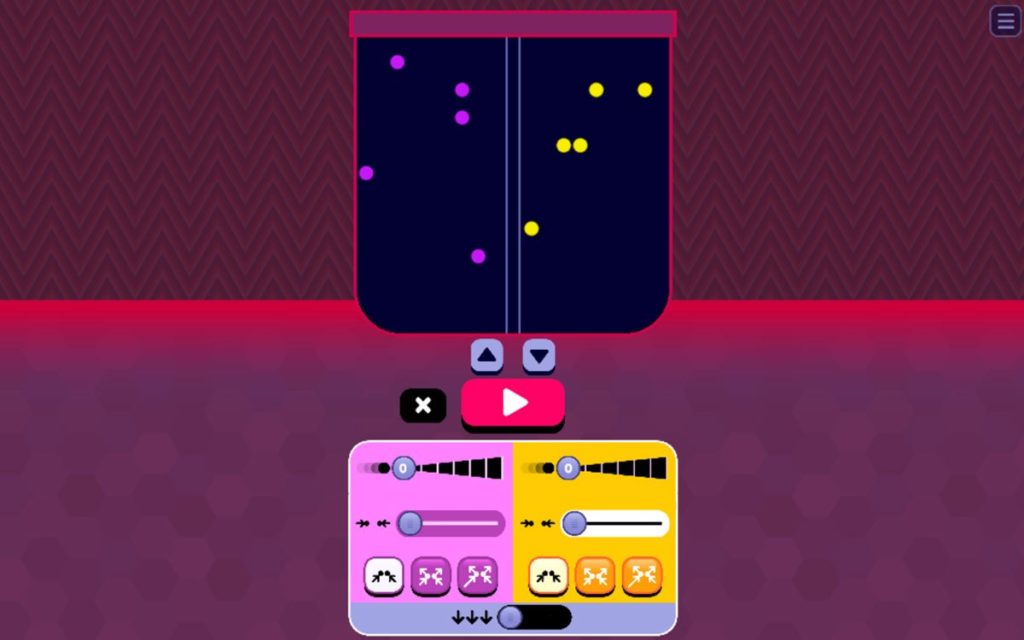
The Land of Bump (top) and Thermonator (bottom) were created in partnership with the award-winning FableVision multimedia production studio.
9. We Released Groundbreaking Apps for Elementary Science
From the online stories “Land of Bump” and “Flying Zippies” to the “Particle Patty” video animation and a special “microscope for temperature” called the Thermoscope, we’re introducing six new educational apps designed for young learners. Designed as part of our innovative research into promoting early science learning, the apps introduce fundamental concepts about the motion of particles related to states of matter and phase change—all in an accessible, interactive way designed especially for K-2 students. Six apps developed by the Sensing Science project are now available in the App Store for iOS devices.
10. We Welcomed the First Robert F. Tinker Fellow
We are delighted to announce Amy Hammett as our first Tinker Fellow recipient. Amy is currently completing a master’s degree in Gifted Education at Fort Hays State University. As a Kansas Master Science Teacher-in-Training and an NGSS curriculum developer, she writes classroom-level exemplar performance assessments for the State of Kansas. She has taught biology, Earth and space science, astronomy, forensic science, zoology, and science research classes at the high school level.
Amy is also active in the research and learning science communities, and is currently organizing a spring 2019 NSF Principal Investigator conference on learning with and about big data. The conference, organized together with Dr. Paul Adams, the NSTA Board Director of Pre-service Teacher Education, will map what has already been achieved in big data learning at the district and school level and set a clear direction for continuous progress. Building on this same line of work, Amy plans to use her time in residence at the Concord Consortium as a Tinker Fellow to develop curricular units for both teachers and students focused on developing data science skills.
The Fellowship was created to honor Robert F. (Bob) Tinker, founder of the Concord Consortium and president until 2009, who passed away in June 2017. Bob saw in technology the power to revolutionize how people learn and teach, and he continually pushed the limits of educational technology and pedagogies, pursuing ever more innovative ideas with new collaborators and partners.
One thought on “The Concord Consortium’s Top 10 News Stories from 2018”
Comments are closed.
You resources are amazing and inspire a new generation of scientists. I recommend your website at every opportunity I get. I would like to participate in your future projects if possible